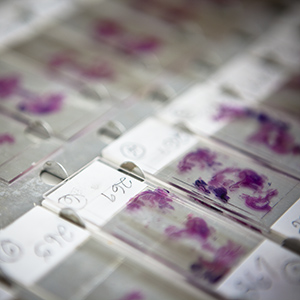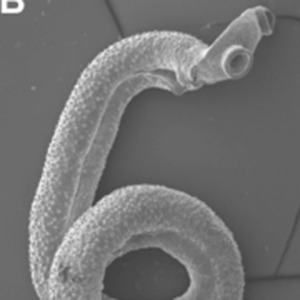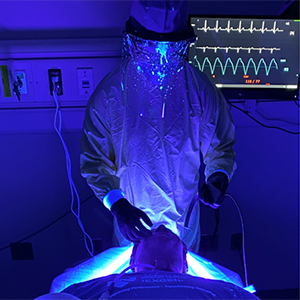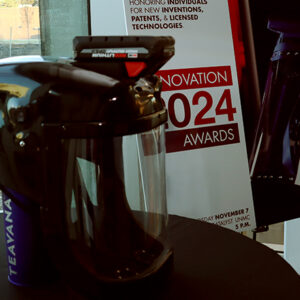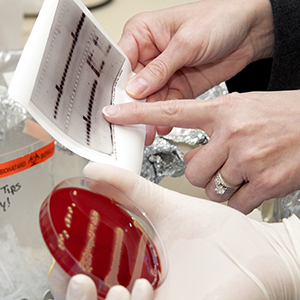Description
Peptides effective against MRSA biofilms
UNMC researchers, led by Gus Wang, PhD, have developed novel antimicrobial lipopeptides with efficacy against MRSA biofilms.
The engineered short lipopeptides are derivatives of human LL-37 (Cathelicidin) and demonstrate improved functionality in vivo in part due to greatly reduced serum protein binding.
Such peptides could be used in combination with traditional antibiotics to treat skin and soft-tissue infections (SSTIs). They could also be used to prevent MRSA biofilm formation on catheters and implanted prosthetics.
To discuss demos and licensing opportunities contact Tyler Scherr, PhD, at tyler.scherr@unmc.edu or 402-889-5498.

